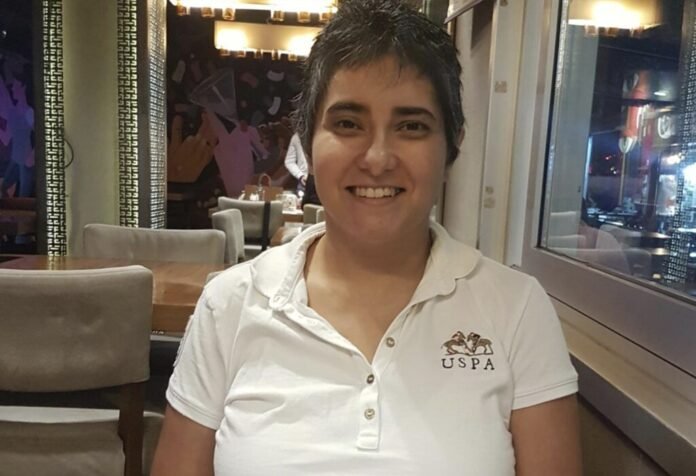A lawyer who lodged a complaint against Turkey’s far-right Nationalist Movement Party (MHP) is claiming that the authorities are illegally attempting to silence her.
Dilek Ekmekçi told Bianet news that her sanity was put under scrutiny by authorities. She said she had twice been subjected to psychiatric evaluations, with authorities seeking to put her under observation at a mental institution for up to three weeks.
Ekmekçi had filed a criminal complaint against several members of the MHP and its paramilitary wing, the Grey Wolves, accusing them of involvement in the December 2022 assassination of Grey Wolves leader Sinan Ateş.
“Instead of allowing me to exercise my rights as a lawyer, they are trying to label me as mentally unstable,” Ekmekçi said.
Ekmekçi has been under immense political pressure. She was arrested on September 1 after MHP officials filed a defamation complaint over a tweet in which she accused party leaders of involvement in Ateş’s assassination. Despite defense arguments citing her right to free speech, the court ruled to arrest her on suspicion of tampering with evidence and for posing a flight risk.
Ekmekçi said there had been multiple procedural violations during her arrest. For example, authorities illegally entered her home and office without proper notification, and her three phones were seized despite her cooperation and admission of ownership of her social media accounts. Ekmekçi called the search and seizure of her belongings a violation of her legal rights as a registered lawyer.
The search, carried out without the required presence of a bar association representative or a prosecutor, violated legal protocols for searching a lawyer’s premises. Furthermore, authorities failed to present a warrant, leaving Ekmekçi uninformed of the legal grounds for the search and seizure.
Ekmekçi criticized the Istanbul Bar Association for its passive stance, stating that no proper legal representative was present during the search and that a lawyer associated with the MHP oversaw the process.
Ekmekçi was eventually cleared of the defamation charges, but an investigation was launched into her on accusations that she was linked to the faith-based Gülen movement. Ekmekçi denies any connection to the movement and said the accusations were part of a smear campaign.
“These false accusations are nothing more than a way to prevent me from exposing the corruption and organized crime I’ve uncovered,” Ekmekçi said.
Turkish President Recep Tayyip Erdoğan has been targeting followers of the Gülen movement, inspired by Muslim cleric Fetullah Gülen, since the corruption investigations of 2013, which implicated then-prime minister Erdoğan, his family members and his inner circle.
Since a coup attempt in Turkey in July 2016, the Turkish government has intensified its crackdown on perceived opponents, frequently accusing dissidents of membership in the Gülen movement.
The movement was designated a terrorist organization (FETÖ) by the Turkish government after the coup, which it blames on Gülen’s followers. This designation has been used as a pretext to silence and prosecute a wide range of individuals, including journalists, lawyers, academics and activists.
In another attempt to silence her, Ekmekçi’s X account was blocked from public access by order of the Istanbul 10th Criminal Court of Peace on August 31.
Ekmekçi’s legal team has contested the ruling, saying her posts were meant to raise public awareness and ask questions about critical issues that concern the public. Her lawyers argued that the posts posed no threat to public order, encouraged no criminal acts and did not undermine national security and therefore cannot be blocked.
Ekmekçi’s struggles with the authorities began in 2020 after she publicly exposed a sex trafficking network operating in Ankara, which she claims forced women raised in state-run orphanages into prostitution. Ekmekçi accused powerful figures within the state and law enforcement of protecting this network. Her criminal complaint against the network led to multiple retaliatory lawsuits, many of which, she says, were designed to silence her investigations.
“This campaign of legal attacks aims to stop me from shedding light on the abuses and criminal networks operating in Ankara,” she said.















